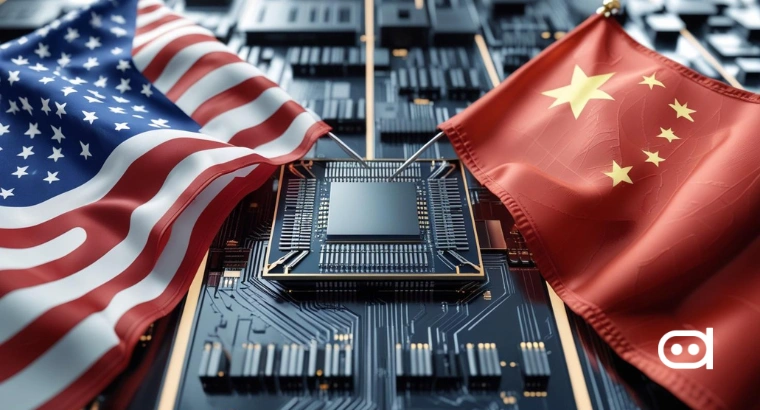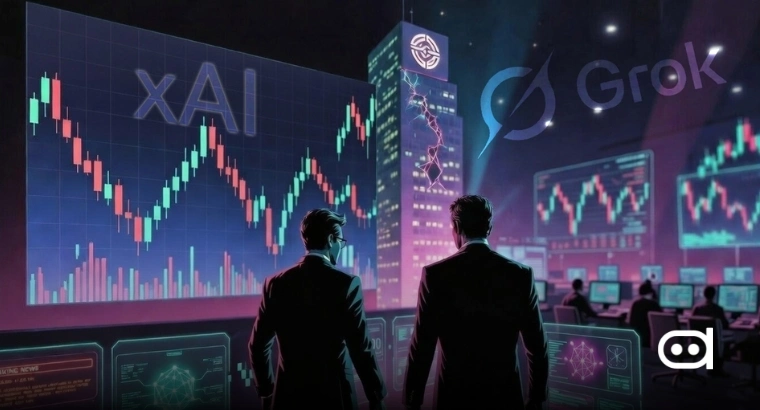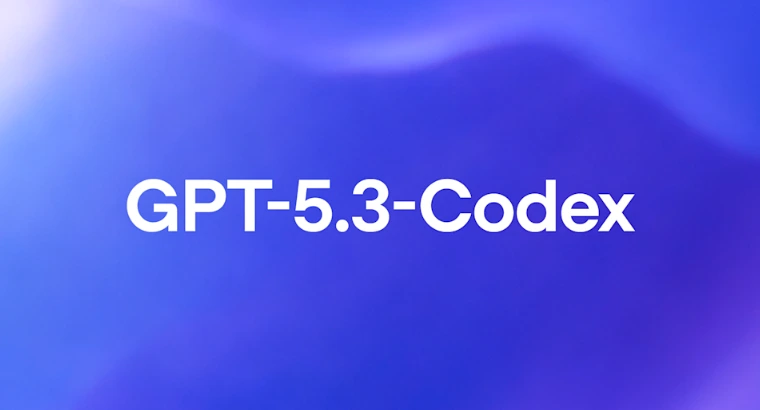
Key Highlights
- The US might provide relief to Nvidia and AMD, allowing them to sell certain lower-performance AI chips to Chinese clients without licenses
- However, these tech giants will have to pay up to 15% of their China sales
- This relaxation comes amid US President Trump extending the China tariff deadline by 90 days
The U.S. government has reached a rare agreement with chipmakers Nvidia and AMD, in which these companies can resume selling certain artificial intelligence chips to China. However, 15% of the revenue from those sales will flow directly into America’s coffers.
The deal, announced Monday, shows a sharp turn from the export ban imposed earlier this year, when Washington blocked shipments of Nvidia’s H20 and AMD’s MI308 chips over fears they could boost China’s military and advanced AI programs.
US Shows Mercy toward China
Back in April, the administration’s national security team halted exports. They cited risks that these high-performance chips could help Beijing build smarter weapons systems or give Chinese tech firms a competitive edge. The freeze hit the companies hard as Nvidia took a $5.5 billion revenue hit, while AMD lost about $800 million in sales.
By mid-July, whispers in Washington hinted at a policy shift. Export licenses would be reviewed, officials said. This would possibly allow shipments again.
But the catch, now revealed, is unprecedented. Nvidia and AMD must hand over 15% of their China sales revenue to secure permission.
President Donald Trump, speaking at a White House briefing, said the initial ask was even higher. “We wanted 20% — we settled at 15% after talking with Jensen Huang, Nvidia’s CEO. It’s a fair deal, and they’re selling an older chip anyway,” Trump said, referring to Nvidia’s H20. The latest report suggests that the US might also allow Nvidia’s sales of advanced AI chips to China.
Nvidia declined to discuss the revenue-sharing formula but confirmed it is complying with U.S. rules.
“We have not shipped the H20 to China for months,” a company spokesperson said. “We hope these rules let us compete globally. If we don’t, America risks falling behind in AI — the way we did with 5G.” AMD has not yet commented publicly.
While corporate executives are quietly relieved to regain access to the massive Chinese market, lawmakers from both parties are skeptical.
Rep. John Moolenaar (R-MI), who chairs the House Select Committee on China, questioned whether such an arrangement is legal.
“Export controls are supposed to protect the nation, not act as a fundraising tool,” he said. Rep. Raja Krishnamoorthi (D-IL), the committee’s top Democrat, called it a “dangerous misuse” of U.S. export law. “You don’t trade national security for cash,” he warned.
This comes after China reportedly urged the United States to relax stringent regulations governing the sale of advanced AI chips.
US Makes Changes in Policy but Risks Empowering China
Policy analysts are also sounding alarms. Derek Scissors, a senior fellow at the American Enterprise Institute, said the revenue cut resembles an unconstitutional export tax.
“There’s no history for this kind of deal,” Scissors said. “It’s essentially a tax on exports — and that could distort the market or undermine defense priorities.”
The stakes go far beyond corporate profits. The U.S. and China are locked in a high-tech arms race over AI, quantum computing, and other frontier technologies.
Washington has already placed sweeping restrictions on China’s access to cutting-edge semiconductor tools, arguing they could be repurposed for military use.
Critics point to January’s debut of DeepSeek, a Chinese AI chatbot, as proof of how quickly Beijing is closing the gap.
In July, a panel of national security experts warned Congress that chips like the H20 and MI308 could be embedded in “autonomous battlefield systems,” potentially making war faster and harder to control.
Still, Nvidia and AMD argue that locking them out of China won’t stop the country from developing advanced chips. It will only hand the market to local competitors and other international suppliers.
Nvidia CEO Jensen Huang has repeatedly warned that overregulation could force global buyers to look elsewhere, weakening America’s influence over AI’s direction.
Commerce Secretary Howard Lutnick suggested the deal fits into a broader trade strategy. He linked it to a July agreement with China on rare earth magnets, critical materials for electronics, missiles, and renewable energy.
Around the same time, Washington postponed new tariffs on Chinese goods for 90 days, signaling an effort to ease tensions while still protecting key industries.
China is a huge market for both companies. Nvidia made about $17 billion in Chinese sales last year; AMD took in roughly $6.2 billion.
If sales rebound to those levels, the U.S. Treasury could collect hundreds of millions of dollars each quarter from the 15% revenue share.
Whether that money strengthens national security or merely fills budget gaps remains to be seen. Supporters call it a clever way to maintain U.S. technological leadership while funding defense priorities.











